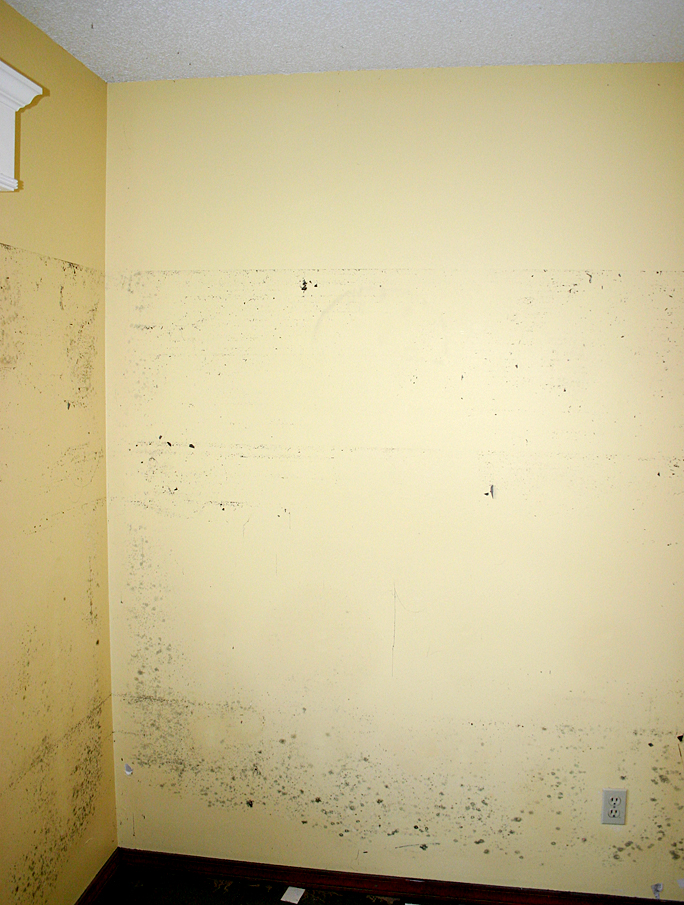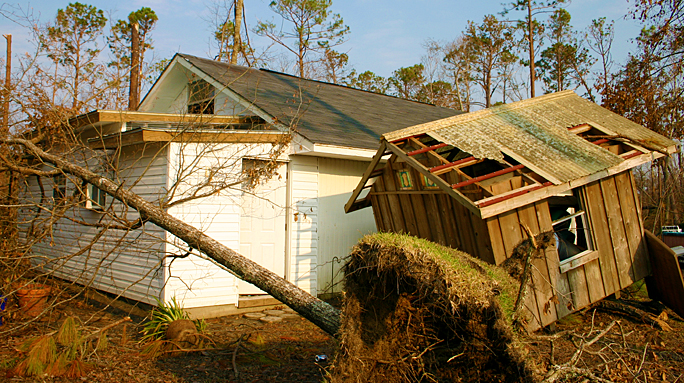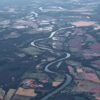I drove through the normally serene town of Pass Christian, which is situated along the Mississippi Gulf Coast at the southwestern corner of Harrison County; and I was stunned to see how Hurricane Katrina nearly wiped it out off of the face of the earth. Greater than 90 percent of the homes were either completely demolished or disappeared from their foundations altogether.
Its proximity to the Mississippi Sound and its mostly flat terrain were chief reasons why a half-mile of the town was under as much as almost 28 feet of water during the height of the hurricane on that dreadful morning of Monday, August 29, 2005, decimating virtually everything in its path…
…and there I was amidst the quiet chaos which still ruled in Pass Christian; its population of approximately 6,500 resident slashed by almost 30 percent primarily because of the hurricane. Churches which still stood had free offerings for once-proud people who needed them by those who were more fortunate and generous. Navigating roads which were still blocked by massive trees that stood for decades was like trying to find the way through a maze with few hints. Historic buildings built as early as the mid-19th century were either significantly damaged or totally destroyed.
Every minute aspect of everyday life which was once taken for granted suddenly became an arduous task which required time, effort and strategy. Gasoline was uniformly priced at $2.49 per gallon at virtually every fuel station — if an open one could be found, that is, judging by the long lines of vehicles — to prevent gouging people whose lives have already been forever altered. Food was difficult to find as well — as was finding a working toilet or a sink which dispensed potable water. Some people only had what they were wearing as the only belongings they had remaining in the world…
…and because the main bridge — which led United States Highway 90 west across the water into Bay Saint Louis — was demolished by Hurricane Katrina, Pass Christian suddenly became temporarily partially isolated from the rest of the world.
Still, progress was painfully slow — but at least there was some measurable progress. Power lines were being restored by utility crews, one at a time — but many people still were without electricity or air conditioning on that still and sultry early September day, where one could not tell if the moisture one felt was the humidity or sweat as they worked hard in their elusive search of finding and restoring what was once normal. Perhaps it was both. Fallen trees were cut amidst the widespread buzzing of chain saws powered by that scarce aforementioned gasoline, whose essence permeated the thick air and mixed with the strong odor of freshly-cut pine.
Stray animals — many of whom were once family pets — roamed the streets and woods in search of food and a place to sleep. Garbage trucks attempted to keep pace with hauling away the growing mounds of refuse. Homeowners who were fortunate enough to have any semblance of shelter were taking inventory of what they had left.
As a person who volunteered to help, I was in for long days and even longer nights of incredible amounts of work — much of which almost seemed impervious to progress — in attempting to help residents along the Mississippi Gulf Coast who remained clean up in order to move on with their lives. Regardless of the extensive coverage pertaining to Hurricane Katrina which I watched on television and read about in the media, nothing could have prepared me for what I witnessed in the aftermath.
With that, I present to you some photographs of one day in Pass Christian which cannot even begin to relate or impart what I saw and experienced; but they certainly relay more than words ever could…

















In the near future, please look for more articles in this series to recognize the tenth anniversary of Hurricane Katrina.
All photographs ©2005 by Brian Cohen.

